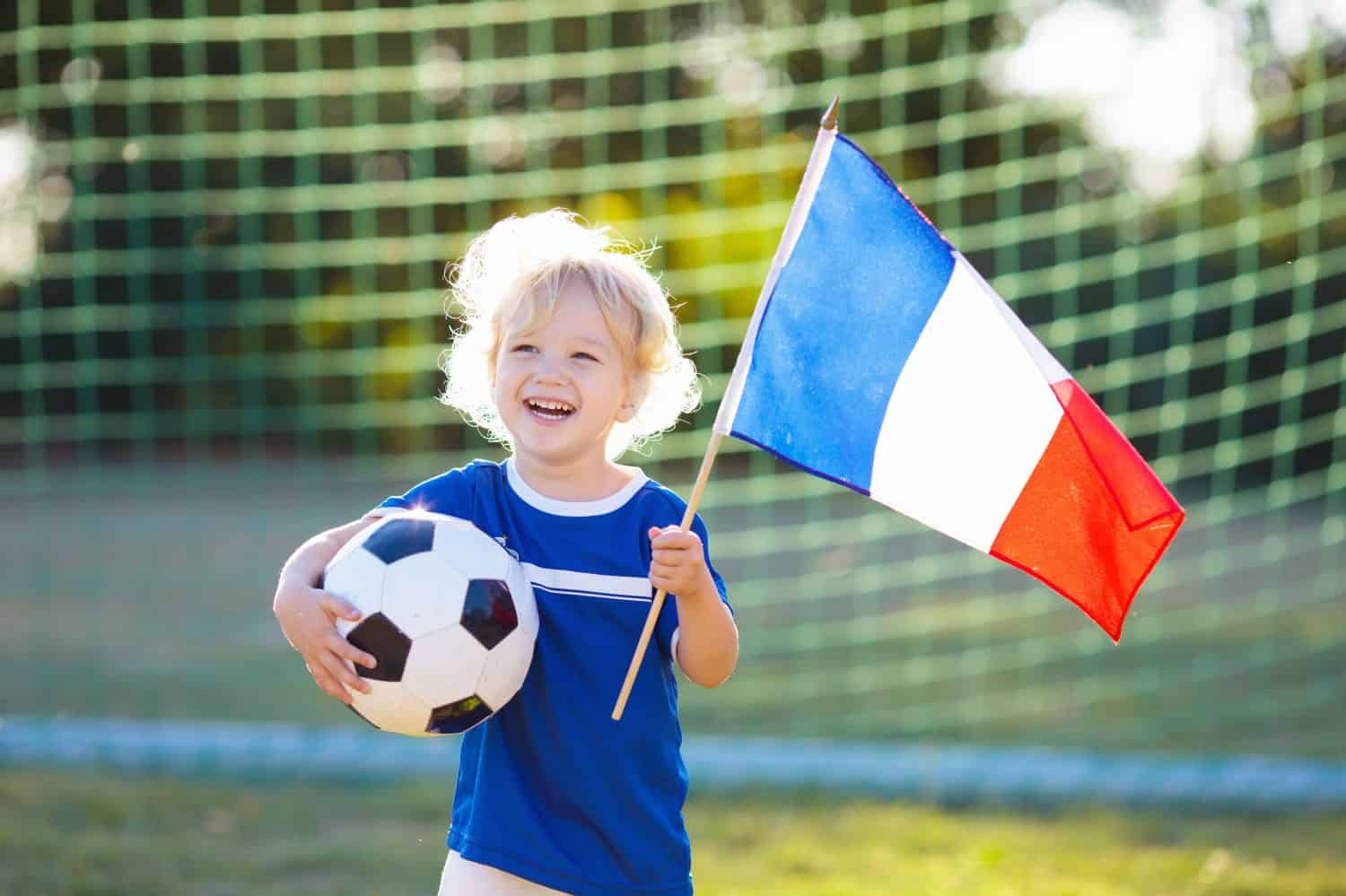As conscientious parents, we want to do what’s best for our kids: give them healthy food, enriching activities, knowledge of technology, and more. But then we find that they’ve developed anxiety about what they eat, are frazzled from being overscheduled, and spend all their time soothing themselves with electronic devices!
What about other developed countries, like France? Have parents there managed to dodge these paradoxes and produce balanced, happy, and well-prepared kids? Check out these 9 typical French approaches to raising children and see if you think they’re the way to go. Incidentally, if you want to dig deeper into these, check out the books Bringing Up Bébé, Bébé Day By Day, Say Bonjour to the Lady, and French Kids Eat Everything.
1. No Kid’s Meals

©Marina April/Shutterstock.com
From an early age, French children eat the same foods as adults, including vegetables and foods with strong flavors or consistencies that American children would balk at. How do parents pull off this feat? By serving potentially undesirable foods at the beginning of the meal when the children are most hungry.
2. Put Them on Pause

©Benoist/Shutterstock.com
Establishing a good bedtime routine is a huge parenting challenge. French parents don’t go immediately to their children when they hear them cry after putting them down for the night. Instead, they use the “pause” technique, giving them a few minutes to self-soothe. In this way, French children begin to sleep through the night.
3. No Rummaging For Snacks

©PeopleImages.com - Yuri A/Shutterstock.com
French parents control the food and do not allow their children to rummage through the cabinets or fridge like raccoons looking for snacks. This stops kids from overeating out of boredom and spoiling their dinner. And it makes a less chaotic kitchen experience for the adults.
4. Get a Life

©Ekaterina Pokrovsky/Shutterstock.com
French parents maintain active social and professional lives apart from their children. In most cases, both parents work and they spend time individually and together in social engagements with their friends. Generally speaking, the French seem less concerned that their children will be damaged by spending some time apart from them.
5. Follow Your Instincts

©Ekaterina Pokrovsky/Shutterstock.com
Compared to American parents, the French read far fewer parenting books and rely on their instincts more. Instead of making them more insecure, this seems to help the French feel more confident in their roles as parents.
6. No Means No

©PeopleImages.com - Yuri A/Shutterstock.com
Compared to typical Americans or even other Europeans, the French are noted for being strict in their childrearing. The children learn from an early age that “no” means “no.” Parents follow through with what they say so that children have absolute predictability what adults will do with no wiggle room to get a different response. This consistency is an integral part of the French customs for raising children.
7. Intentional Table Manners

©Lapina/Shutterstock.com
Children in France learn table manners so well that visitors often marvel at how well-behaved they are in restaurants. In many families, the children eat first and the parents focus full attention on showing them how to use utensils and handle different kinds of food. They set time limits and activity parameters to focus the children on the task of eating, or else they will go hungry.
8. Society Supports Parents

©PeopleImages.com - Yuri A/Shutterstock.com
Sometimes in the United States parents are reluctant to correct their children in public because of judgment from other people. French society is generally more supportive of parents taking an active role in disciplining their children. Strangers may voice their approval or nod in agreement as a parent corrects their child in public. Adults feel like they have the support of those around them in their parenting decisions.
9. Clear Authority

©fizkes/Shutterstock.com
In France, it is very clear that parents and indeed all adults have authority over children. There is no muddying of these categories. Children are taught to respect adults and obey their parents. This does not mean their families are necessarily harsh. Parental authority is strongest when it does not have to be announced, but is the quiet default practice of a household.
Bonus: What Do the French Like About American Parenting?

©Inside Creative House/Shutterstock.com
A strength of the American style of childrearing that many French parents have commented on is that, both at home and at school, Americans work hard to build children’s self-esteem. Parents take the time to explain the reasons for rules, allow children to ask questions, and allow them to make some choices for themselves. This can instill strong traits of confidence and creativity, which are assets in any culture.
The image featured at the top of this post is ©FamVeld/Shutterstock.com.
